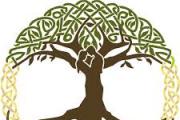What advantages can a person have? What are the shortcomings of a person? Disadvantages and advantages of a person: what to write in a resume What disadvantages there may be
It's no secret that in our modern world, almost nothing is ideal. Each individual has his own characteristics. For some these are advantages, but for others these are significant disadvantages. It all depends on how the person himself relates to this or that character trait.
Even if we take any quality of a person, it can be attributed to both advantages and disadvantages. If we take for example the trait of generosity. If for friends, then this is a positive quality; everyone likes generous friends, but if you look from the other side, as for the family, then this is already a person who is somewhat wasteful, then this is considered a disadvantage.
Another example is responsiveness. A sympathetic person will always come to the aid of his neighbor. This is of course a positive feature. But if a person is overly responsive or, more simply put, trouble-free, then he will also have a hard time in life. People around you will use it. Therefore, everything good should also be in moderation.
Following from this, shortcomings should be understood as personal qualities that prevent you from becoming successful and happy.
Types into which the main shortcomings of a person can be divided
- Psychological type - such shortcomings often scare people away and create problems in their personal lives, and can also become an obstacle to career growth. (anxiety, withdrawal, laziness, fear, cruelty)
- Physical type - such defects are somewhat subjective, because any physical quality of a person can be perceived from different angles. These include height, body structure, eye color, face shape, body type, skin condition. Some people don’t like being overweight, but for others, being overweight is something to be proud of, the same can be said about short and tall stature. Some people have a complex about their short stature, but for others it is an advantage.
- Female type of shortcomings - these include excessive modesty or promiscuity, talkativeness, duplicity, greed, callousness, touchiness and others. Such shortcomings sometimes even lead the weaker half to discord in their personal life.
- Male type of shortcomings - these include dictatorship, rudeness, lack of a sense of humor, greed, untidiness, indecisiveness, and others. These shortcomings can also make life difficult for men.
No matter what shortcomings or advantages a person has, it is important to know that we ourselves are the creators of our own character.
Although it is believed that man was created by God, in His image and likeness, he is a sinful and imperfect being. However, its shortcomings are also undeniable. And these shortcomings include such unsightly qualities as pride, greed, envy, condemnation, intolerance, stubbornness, and so on, the list can go on for a long time. Many of these qualities, unfortunately, are ingrained in a person from childhood, that is, they are the result of improper upbringing of a child in the family by parents.
A person’s strengths and weaknesses do not appear in him suddenly and suddenly, this is understandable. Everyone has a hand in shaping the distinctive character traits of a child, starting from the parents themselves and their immediate environment, and continuing with kindergarten, school, and so on. For example, if in childhood a child was constantly pushed, forced to rush, when he was forced to run to a large number of circles and sections, try to do everything in time, otherwise he would be scolded - he develops such a quality as impatience. Stubbornness also appears when parents always try to go against the will of the child and cause in him a constant feeling of protest, and permissiveness, on the contrary, leads to promiscuity and arrogance.
The shortcomings, like the advantages of a person, of course, have deep roots. Greed can form in a child from a lack of love and attention, and this can also lead to despair and despondency, which will then lead to self-abasement. Then a boss will appear who will suppress his will, so fear, hypocrisy, and servility will arise in the person, which will in no way lead him to self-respect and self-esteem.
What are human dignity, how are they expressed in life and character? Actually, according to Dahl’s dictionary, dignity is respect, a set of fairly high moral qualities. And it should not be confused with arrogance, these are completely different things. When they say that this one means that he is worthy of respect, thanks to his valuable personal qualities, behavior in society, actions, and so on. If a person begins to inflate his price, he becomes arrogant, thus losing respect for the honor and dignity of the individual. Therefore, you need to understand that these are completely different things.
A person’s advantages and disadvantages continue to be formed even when he leaves childhood, under the influence of society. A positive assessment of his behavior and actions elevates him in the eyes of the public. This can give him strength and desire to fight his shortcomings and strive for further improvement. A negative assessment by public opinion can lead to aggravation of these shortcomings, therefore, ideally, this assessment should be objective.
Recognition by society of a person’s dignity means a certain assessment regarding his moral qualities. The more strongly such qualities as honesty, respect for people, nobility, goodwill, sincerity, modesty, sensitivity, and so on are manifested in him, the greater the value such a person represents for society. Accordingly, if parents want to raise their child as a worthy member of this very society, they must lay down and develop in him these
These also include:
Modesty. This is when a person, even having many advantages, behaves simply and unnoticed, without sticking them out or boasting.
Shame and conscience. Believers say that it is the voice of God inside a person that tells him what is good and what is bad and leads him to the desire to repent of his bad actions.
Honor. These are also worthy of respect from society.
One who has this will never insolently insult anyone, humiliate or insult another.
This is the advantage of communicating with a person who has honor and dignity.
Every person is endowed with a unique, personal character from birth. A child can inherit certain traits from his parents, some show them to a greater extent, while others are completely different from any of the family members. But character is not the behavior of parents projected onto the child; it is a more complex mental phenomenon. The list of positive ones is very long. In this article we will try to highlight the main character traits.
person?
Translated from Greek, the word “character” means “distinctive feature, sign.” Depending on the type of their psychological organization, people find their soul mates, establish relationships, and build their entire lives. Human character is a unique set of mental characteristics, personality traits that play a decisive role in various aspects of a person’s life and are manifested through his activities.
To understand the character of an individual, it is necessary to analyze his actions en masse. Judgments about morality can be very subjective, because not every person acts as his heart tells him. However, it is possible to identify individual stable character traits by studying behavior for a long time. If a person makes the same decision in different situations, draws similar conclusions and demonstrates a similar reaction, then this indicates that he has one or another trait. For example, if someone is responsible, then his behavior both at work and at home will meet this criterion. If a person is cheerful by nature, a one-time manifestation of sadness against the background of general positive behavior will not become a separate character trait.

Character Formation
The process of character formation begins in early childhood, in the child’s first social contacts with his parents. For example, excessive love and care can later become the key to a stable characteristic of a person’s psyche and make him dependent or spoiled. That is why many parents are especially attentive to instilling positive character traits in their children. They get pets so that the baby can feel what responsibility is, assign him to do small chores around the house, teach him to put away his toys and explain that not all desires and whims can be fulfilled.
The next stage is kindergarten and school. The child already has the basic character traits, but at this stage they can still be corrected: you can wean the little personality off greed and help get rid of excessive shyness. In the future, as a rule, the formation and change of character traits are possible only when working with a psychologist.

Character or temperament?
Very often these two concepts are confused with each other. Indeed, both character and temperament shape human behavior. But they have a fundamentally different nature. Character is a list of acquired mental properties, while temperament is of biological origin. Possessing the same temperament, people can have completely different characters.
There are 4 types of temperament: impetuous and unbalanced choleric, unhurried and imperturbable phlegmatic, easy and optimistic sanguine and emotionally vulnerable melancholic. At the same time, temperament can restrain certain character traits, and vice versa, character can compensate for temperament.
For example, a phlegmatic person with a good sense of humor will still be stingy in showing emotions, but this will not prevent him from demonstrating a sense of humor, laughing and having fun in the appropriate society.

List of positive human qualities
The list of positive and negative qualities of a person is huge. Initially, all definitions regarding the nature and essence of a person, his behavior are subjective. Society has established certain norms that allow us to determine how positive or negative a particular personality trait or action is. However, there are the highest qualities of a person that demonstrate his virtue and good intentions. Their list looks like this:
- altruism;
- reverence for elders;
- kindness;
- fulfillment of promises;
- moral;
- responsibility;
- loyalty;
- perseverance;
- moderation;
- responsiveness;
- honesty;
- sincerity;
- selflessness and others.
These qualities, along with their derivatives, constitute the nature of the true beauty of a person's character. They are laid down in the family; in the process of upbringing, children copy the behavior of their parents, and therefore a well-educated person will have all these highest qualities.

List of negative human qualities
The list of positive and negative qualities of a person can take a long time to form, since there are a lot of them. Attributing to a person the presence of a negative character quality based solely on his action or behavior will be completely wrong. You can't put labels on anyone, even the most well-mannered may actually believe that they are endowed with, say, greed or arrogance. However, if this behavior is a pattern, then the conclusion will be obvious.
The list of negative traits, as well as positive ones, is huge. The most basic and common ones look like this:
- lack of will;
- irresponsibility;
- harmfulness;
- greed;
- malice;
- deceit;
- hypocrisy;
- hatred;
- selfishness;
- intolerance;
- greed and others.
The presence of such character traits in a person is not a diagnosis; they can and should be dealt with even in adult, conscious age, and correct behavior.

Character traits that manifest themselves in relation to other people
We have compiled a list of positive and negative human qualities. Now we will talk about character traits that manifest themselves in relation to other people. The fact is that depending on in relation to whom or what a person performs an action or deed, a specific individual feature of him is revealed. In society, he can demonstrate the following qualities:
- communication skills;
- responsiveness;
- sensitivity to other people's moods;
- respect;
- arrogance;
- egocentrism;
- coarseness;
- isolation and others.
Of course, a lot depends on the conditions in which a person finds himself: even the most open and sociable person can experience problems communicating with a strict, closed and heartless person. But, as a rule, polite people endowed with positive qualities easily adapt to society and suppress their negative traits.

Character traits manifested in work
Building a person’s career directly depends on the qualities of his character. Even the most talented and gifted people can fail because they are not responsible enough for their work and their talent. By doing so, they only harm themselves and do not give themselves the opportunity to reach their full potential.
Or, on the contrary, there are cases where the lack of talent was more than compensated for by special diligence in work. A responsible and careful person will always achieve success. Here is a list of the main character traits:
- hard work;
- responsibility;
- initiative;
- accuracy;
- sloppiness;
- laziness;
- negligence;
- passivity and others.
These two groups of character traits actively overlap with each other, since work activity and communication between people are inseparably linked.
Character traits manifested in relation to oneself
These are the traits that characterize his self-perception in relation to himself. They look like this:
- feelings of self-worth or superiority;
- honor;
- arrogance;
- self-criticism;
- egocentrism;
- self-adoration and others.
Character traits manifested in relation to things
Attitude to things does not affect the building of a person’s social connections, but demonstrates and reveals the best or unsightly qualities of his nature. These are traits such as:
- accuracy;
- thrift;
- scrupulousness;
- sloppiness and others.

Mentality, qualities of a Russian person
Mentality is a very subjective concept, and it is based on stereotypical thinking. However, it cannot be denied that certain traits are inherent in one or another nationality. Russian people are famous for their cordiality and hospitality, and cheerful disposition. The Russian soul throughout the world is considered mysterious and incomprehensible, since Russians are not distinguished by the rationality and logic of their actions, and are often influenced by mood.
Another feature of the Russian people is sentimentality. A Russian person instantly adopts the feelings of another and is always ready to share emotions with him and lend a helping hand. One cannot help but mention another trait - compassion. Historically, Russia has helped its neighbors at all borders of the country, and today only a heartless person will ignore the misfortune of another.
Positive and negative qualities of a person are determined by the psychology of the individual and his body constitution. The system of properties and qualities of character is imprinted on the manifestation of personal characteristics.
Important! The static character is determined by the nervous system, and its dynamics are determined by external factors!
List of negative personality traits
- The bad qualities of a proud person are manifested in the opinion that the whole world exists for his sake and everything should happen according to his whims and for his pleasure.
- Lust for power is the tendency of people to thirst, with or without reason, to command and control everything and everyone.
- Selfishness and vanity are a concentration on one’s needs and an excessive love of honor.
- The bad qualities of a jealous person are a feeling of envy towards the obvious or imagined successes of a rival, especially in the field of love for an object.
- Touchiness is an attempt to attract attention and get more than a person is willing to give.
- Envy is a feeling of annoyance caused by the well-being and success of another person.
- Vindictiveness is the desire and readiness to respond with evil to evil caused, regardless of whether there is expediency in this.
- The bad qualities of a cruel person are the desire to cause suffering to any living being.
List of positive personality traits
The formation of a noble and bright image is achieved with the help of a number of individual psychological abilities of the individual:
- Certainty is the accuracy and clarity of thought, the absence of inconsistency and confusion in the elements of thought and the thoughts themselves.
- Stress resistance is a good human quality that is highly valued due to the ability to withstand strong negative emotional influences that cause high mental tension.
- Mindfulness is the ability to listen to another person.
- Compassion is pity and sympathy caused by the misfortune of other people.
- Respect is the best quality of a person, which lies in the ability to take into account the interests of others.
- Mental generosity is the ability to give one’s strength, feelings and abilities to others.
- Hard work is the willingness to perform any work with full dedication.
- Cheerfulness is the good qualities of a positive person, which help to find bright positive sides in all life situations.
- Honor is the inner moral dignity of a person.
- Gratitude is contentment with your talents and gifts of nature, without taking them for granted.
- Humility is the good quality of a non-proud person who is willing to submit to the will of others.
What is most valued in women?
- Thrift is the ability to wisely manage your property and your mental strength.
- Meekness is gentleness of character.
- Tenderness is a manifestation of touching care for a loved one.
- Patience is the best quality of a strong person, which is expressed in moral stability and clarity of mind.
What makes a man ideal?
- Courage is the ability to act in the face of despair.
- Wisdom is thinking deeply and making decisions based on rich life experience.
- Reliability is the best quality of a responsible person, which includes firmness in decision-making and keeping one's promises.
Grouping Behavioral Factors
- Relationships between people and others. Sociability, sensitivity, kindness and respect are the main advantages of collectivism. Negative qualities of a person are closed, callous, rude, deceitful, contemptuous manifestations inherent in individualism.
- Traits that determine the approach to business. Creativity, responsibility and conscientiousness in performing assigned tasks, showing initiative and perseverance are positive human qualities.
Unacceptable ones manifest themselves in the form of laziness, inertia and indifference. - Attitude to your “I”. The system of symptom complexes includes self-esteem and critical self-esteem. The positive qualities of a person are modesty and the absence of bad qualities - conceit, arrogance and vanity. Negative indicators include arrogant, touchy, shy and selfish tendencies.
- Attitude to things. Accuracy or disdain for material goods allows us to assess the character of a person.
People's behavior is dictated by generally accepted standards. From the moment of birth, each individual is assigned positive and negative qualities. Their manifestation is determined primarily by upbringing, as well as the ability to cope with critical situations.
Body features and personality
German psychologist Ernst Kretschmer put forward a theory that helps group a list of bad and good sides based on a person's physique:
- Asthenics (translated from Greek “asthenic” means weak) are thin individuals with an elongated face and limbs, poorly developed chest and muscles. They also belong to the group of schizothymics. Negative qualities of a person are manifested by isolation, seriousness, stubbornness, and a low level of adaptability to the new environment. Psychological disorders are accompanied by signs of schizophrenia.
- Athletics (wrestlers) are tall people with broad shoulders, a powerful chest and a strong skeleton, developed muscle tissue. The positive qualities of a person (ixothymic) are calmness and practicality, restraint. They are not impressionable and do not tolerate change. Mental disorders lead to epilepsy.
- Picnics are good people who are prone to obesity, of average height and short necks. Cyclothymics have a wide face with small features. They are sociable and easy to make contact. The best qualities of a complete person are expressed by increased emotionality and easy adaptation to a new environment. Mental disorders are accompanied by manic depressive states.
Manifestation of negative qualities of people in various situations

Career. On the path to promotion, the best qualities of a good person can replace hypocrisy, lies, vanity, hatred and arrogance.
Extreme situation. A feeling of fear for your health and life can cause unexpected actions (deceitful, treacherous, cowardly, weak-willed, and others).
Relationship. A clear example is jealousy, stupidity, greed, grumpiness and sloppiness. A person's bad qualities are especially noticeable when living together with other people.
Manifestation of positive qualities of people in various situations

Extreme. Brave, inventive, persistent and serious people are highly respected in society. This category includes loyal, reliable and responsive individuals who show their best sides in a tense situation.
Significant other. Ideal relationships with loved ones require cultivating compliance, attentiveness and kindness. It is important to show tenderness, loyalty and patience - the main positive qualities of a person in a couple.
High post. When moving up the career ladder, a special indicator is moral fortitude, conscientiousness and hardworking attitude. Demonstrating honest, punctual and tactful behavior is the ideal tactic of a conscientious employee.
Society's attitude
According to the generally accepted opinion, good qualities in a person always lead to development. Unacceptable actions, on the contrary, drive you into a dead end. Adequate and dignified behavior is highly valued. Fair, ambitious, and good relationships are important indicators. Condemned - betrayal, pettiness, envy and indifference.
The manifestation of dark and light sides is always assessed together. There are no ideals. With a good upbringing and compliance with all the parameters of a benefactor, it is possible that the presence of bad habits related to negative properties. Each individual has the right to independently choose an appropriate model of behavior throughout his life.
You will need:
– a sheet of paper and a pencil;
– time for reflection.
Be prepared for:
– the fact that it will be difficult to find advantages and benefits;
– the fact that the list will have to be reviewed regularly.
This may not be useful if:
– you have already compiled a similar list during psychological training or in preparation for another interview.
There is a very reliable way to confirm your decision to find a job and be confident at an interview - this is to make a list of your advantages and advantages over your competitors. Compose it not in your head, but on a piece of paper. This is simply necessary so that you can clearly see their presence. You need to take a comfortable place (for some it is more comfortable at a table, for others in a cozy chair), take a piece of paper and divide it in half with a line. At the top, write the “Advantages” and “Benefits” sections. In the “Advantages” column, make a list that includes personal character traits and personality traits. The “Advantages” column contains your features that distinguish you as a professional and a self-confident person. Perhaps some points will overlap with each other, do not make any special distinctions where exactly one of the points should be included. Theoretically, there should be fewer advantages, since they are built on the basis of advantages, but not every advantage can become an advantage. For example, speaking English is definitely an asset. But, if you are hoping to get a position where English is a mandatory requirement, this advantage will not be an advantage, since all candidates will have it. In this case, any additional foreign language can be an advantage.
You don’t have to show this list to anyone, it’s only needed to raise your self-esteem and self-esteem. Next, we will go over the most common and important character traits and professional skills. All you have to do is think about whether you have them and add them to the list of your advantages and advantages.
1. Sociability – readiness for interpersonal communication, to take initiative in conversation with any social categories of people. If you are not intimidated by the prospect of meeting, talking and establishing friendships and business relationships with many strangers, you love to chat and enjoy participating in conversations, then you definitely have this quality.
2. Openness is a state of your psyche in which you can calmly and even willingly accept words and actions in your direction from other people. Openness to communication, self-criticism and, as a result, the ability to perceive any words painlessly, readiness for personal questions and sincerity in answers are all signs of this quality.
3. Balance is also a mental state in which you are not influenced by external stimuli. This is the ability not only to control oneself, but also to prevent excessive emotions from appearing at all. This character trait implies the absence of special outbursts of both positive and negative emotions.
4. Contact – readiness to cooperate with people, implies both initiative and acceptance of other people’s initiatives. If you quickly find topics for conversation that will interest both you and your interlocutor, if business relationships are quickly established, this is your plus.
5. Friendliness - the ability to add a shade of personal sympathy to personal communication. If, in addition to communication, you know how to sympathize with people regardless of their social status and appearance, if you treat them with warmth and understanding, then feel free to add this item to your list.
6. Politeness – adherence to etiquette in interpersonal relationships. Even in the most stressful situations, maintaining polite behavior and not resorting to insults and personalities is an absolute plus to your polite words.
7. Non-conflict – the ability not to succumb to other people’s provocations, to restrain oneself and direct positivity towards this situation. Note these advantages in your own sense if you have not noticed yourself being excessively picky towards people and the desire to annoy them, and if you know that any problem can be solved not by shouting, but by simple negotiations.
8. Responsibility is a quality due to which you clearly understand what and why you need to do, and do it without fail, realizing that this is your job, and only you can finish what you started.
9. Composure - readiness to use all the necessary resources of your mind and body: a state in which you keep yourself in good shape and concentrate your strength. A collected person does the necessary work without hesitation; he does not need to take a long time to tune in to the atmosphere, tone and type of activity.
10. Initiative - promoting your ideas, views, opinions, actions independently. You are the owner of this quality if you are able to start and complete a task without constant outside advice, adding your own personal ideas to it.
11. Intelligence – this refers to the level of your intelligence, your horizons of knowledge. The higher your knowledge, the better you understand all manifestations of the outside world, the more you understand people and know how not to look at them through the prism of your own emotions, the faster you think, the higher your level of intelligence.
12. Not talkative - this means the ability not to interfere in other people's affairs and not to gossip. If you like to discuss someone with someone, you do not have this quality.
13. Originality is a quality that distinguishes your mental and behavioral reactions from the standards of others. If you are not subject to the “herd instinct”, are not afraid to defend your opinion, different from others, your reactions to stimuli are sometimes directly opposite to those of others - then you are an extraordinary person.
14. Sociability – having a broad horizon of knowledge and positive personal qualities. The ability to adapt to any style of communication, to any person and situation, qualifications in all areas of knowledge required by your profession. Put this item on the list if you think that you know how to find a common language with all social strata.
15. Diplomacy – the ability to maneuver in a conversation, avoiding pitfalls and negative aspects. A diplomatic person does not go towards his goal abruptly and directly, but studies the situation and chooses the least emotional option for developing and conducting a conversation.
16. Persistence – the ability to achieve what you need. This is a good quality that helps you not to shy away from difficulties, but to overcome them, achieving positive or negative results, and trying to get to your goal over and over again.
17. Learning ability – the ability to quickly perceive and process new information. If you quickly grasp new concepts on the fly, delve into the essence of issues, strive to expand your horizons and do not give in to difficult problems, but learn from the experience of solving them, you have a high level of learning ability.
18. Originality - the ability to find several ways to approach situations and people. Mark this quality if you can find several solutions to the same problem depending on changing circumstances.
19. Loyalty - recognition of the authority of a higher-ranking employee, the absence of pronounced rebellion. If you realize that your immediate superior will have more developed professional qualities, and you do not openly compete with him, even if this is not the case, then you will make a good subordinate.
20. Activity – physical and mental, the speed of metabolic processes in the brain and between the head and body. An active employee reacts quickly to changes, has defensive reactions against difficulties, is proactive and efficient, and overcomes internal and external restrictions in all areas of life.
21. Punctuality – adherence to strict time frames. Implies responsibility and composure in the performance of official duties.
22. Creative thinking - creating projects and thought processes that go beyond standard thinking. If you know how to think about professional problems, then the solution approaches will be unusual and effective.
23. Equanimity – the ability to restrain one’s emotions in an unfavorable atmosphere. If you maintain your integrity in any situation and don't let irritation ruin your mood, this will add an item to your list.
24. Determination – the desire to reach the intended height at any cost. What is your favorite saying: “The ends justify the means”? You are a very purposeful person.
25. Optimism – the ability to see the positive in all events. There is a saying: “For optimists, the glass is always half full, and for pessimists, it is always half empty.” Choose for yourself how you feel about it, and draw a conclusion accordingly.
26. Qualification – sufficient education for work. The higher the level of training specific to your job profile, the more qualified employee you are.
27. Imagination – the ability to “dream”, fantasize, and invent situations. People with the gift of imagination are a boon for an enterprise, as they can think through all the logical chains of events.
28. Experience – having work experience in exactly the position (and in the field) for which you are going. This can be an important advantage over candidates.
29. Composure is the ability not to react to any physical actions of other people. If you look at open wounds without shuddering and stand boldly on your feet, even if the whole world around you is collapsing, this is a huge plus. You will be able to evaluate actions from the outside and act with a cool mind.
30. Spontaneity is a mental state in which a person does not adhere to the strict framework of conservative behavior, but shows liveliness and varied interests. Of course, this is a little childish behavior, but colleagues always like a lot of sincerity and friendliness.
31. Adequacy – understanding and perception of reality as it is. If you understand exactly how to determine the degree of complexity of a situation and select the necessary reaction, you are an adequate person.
32. Spirituality – the presence of a rich spiritual world. If you try to understand your existence, where, why, why and how you live, believe in God and recognize the divine essence of human existence, you will be a very interesting person to communicate with.
33. Integrity - exposure to certain postulates of behavior. If, in spite of everything, you do not betray your inner principles, but live guided by them, then you are an integral person, non-capricious and consistent.
34. Positivity – non-aggressive perception of the world around us, good deeds and sublime thoughts. This is a defensive reaction of the psyche; life is much easier for a person with positive thinking.
35. Tactfulness – understanding the boundaries of the interlocutor’s personal zone. If you understand that some things simply cannot be asked of people, since they are painful for them, if you know how to stop in time at the barrier of separating general topics from intimate ones, you have a sense of tact.
36. Delicacy - a gentle approach to the problems of the interlocutor. Delicate people are valued for their ability not to open the complexes in the personalities and lives of other people.
37. Objectivity – the ability to concentrate on one object, realistically assessing all the pros and cons of a situation, and not superimposing one’s own feelings on the assessment of the situation. This can also include self-criticism, since such a person will definitely not allow emotions to prevail over reason and is aware of the state of things based on the standards of thinking.
38. Impulsivity is the tendency to act on the first impulse, spontaneously. Sometimes this quality helps in solving production problems.
39. Flexibility is a person’s ability to adapt to changing conditions.
40. Ability to speak foreign languages. If you have linguistic abilities, this is a definite item on the list of advantages.
| |














